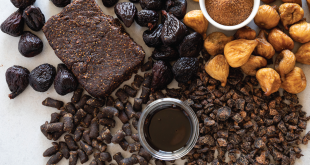March 8 marked International Women’s Day. There is a “day” for everything so it’s easy to ignore – National Donut Day anyone? – but this is an issue that truly affects us all. The election in the States has been interesting to watch. Despite Donald Trump’s hateful comments toward women (and others), Hillary Clinton could become the first female president of the United States. This issue of equality touches everything from the fact that when I covered the tech industry as a journalist I was often one of the only women in the room, to the much-maligned “pink” tax or the fact women are charged more than men for everything from personal care products to drycleaning. I’m not even going to delve into the issues women and girls face on other continents.
In fact, the World Economic Forum now predicts that the snail’s pace of progress means the gender gap won’t close entirely until 2133.
This industry is not immune. The commercial kitchen and the commercial food industry are decidedly male-dominated. Look no further than organizations such as Canadian Women in Food, Women of Influence in the Food Industry and Women in Food Industry Management, three organizations which exist to promote, connect and mentor women in the food industry. The very fact that these organizations exist suggests a need that must be filled.
Interestingly, the home kitchen may be the one domain where women do hold the power. According to Canadian Women in Food, women spend 50% more time cooking than men. They make the purchasing decisions associated with that cooking as well. This goes across age groups, including younger groups of adults who you would think are less-inclined to fulfill traditional roles.
In fact, YEMMies – Young Educated Millennial Moms – were recently identified by Ipsos as a very influential group. Ipsos says YEMMies are greatly influencing food and beverage consumption habits. The emerging cohort of 1.7 Millennial Moms is projected to swell to four million consumers over the next 10 years. The researchers say these women are a new breed of decision-maker and eating influencer. With an average age of 29 years old, they are better educated, have more spending power and are not isolated by new motherhood but are connected and engaged. They have complex and intersecting needs for real food solutions that are nutritious and convenient.
In our story on p. 14, Kathy Perrotta says key for businesses to win over YEMMies will be the ability to exhibit an understanding of what matters to them as people, as parents and, importantly, as consumers. That goes without saying. What also goes without saying is that encouraging more women to enter the field, as scientists, as manufacturing executives, and everything between, will also allow companies to speak to women in an intelligent way that will be positively reflected on the balance sheet.
Sincerely
Theresa Rogers
 Canadian Food Business
Canadian Food Business




